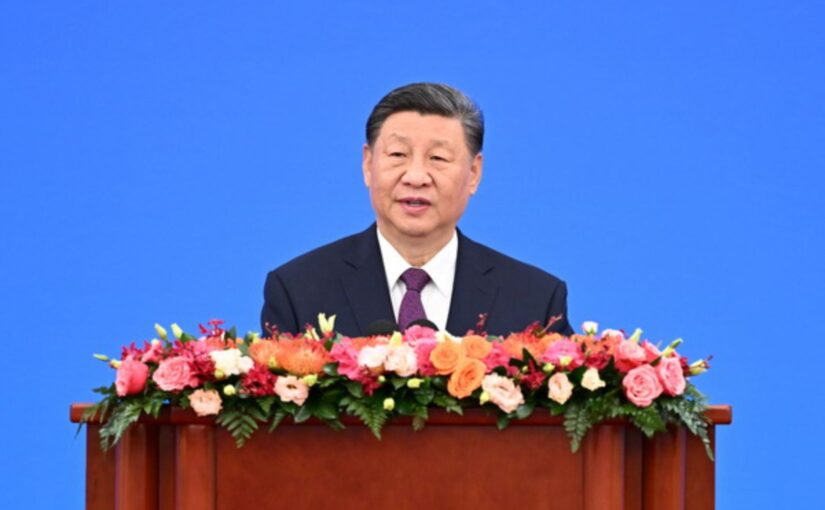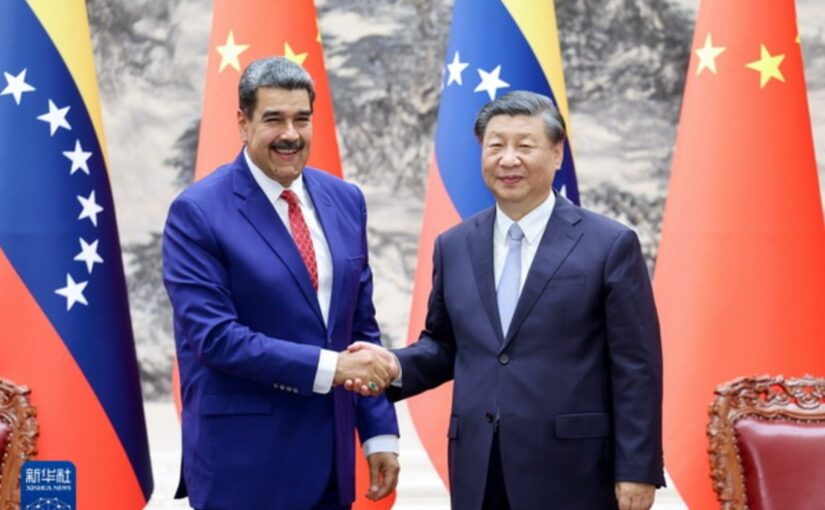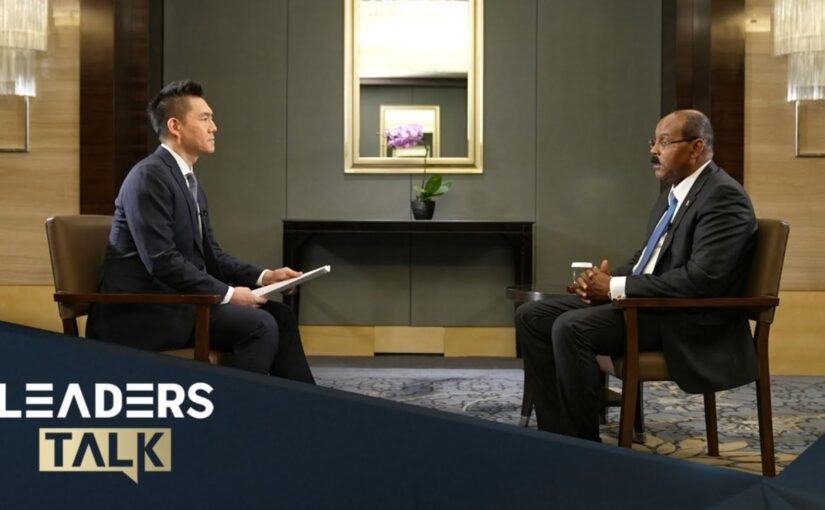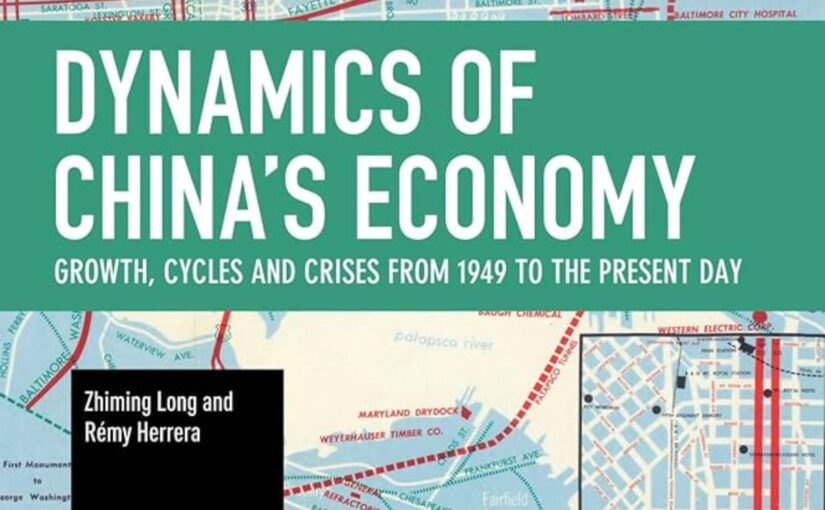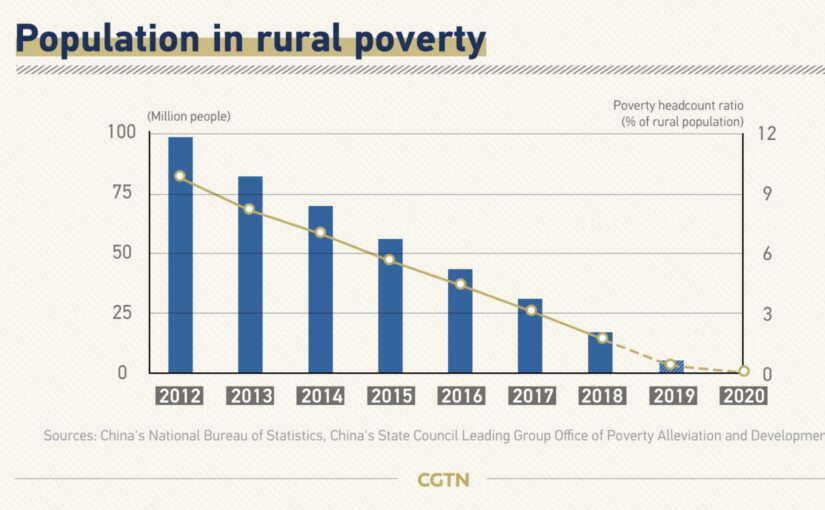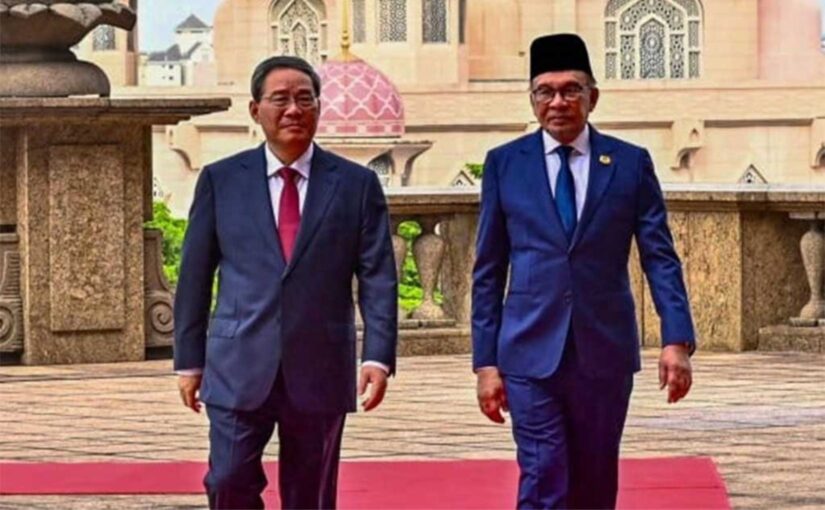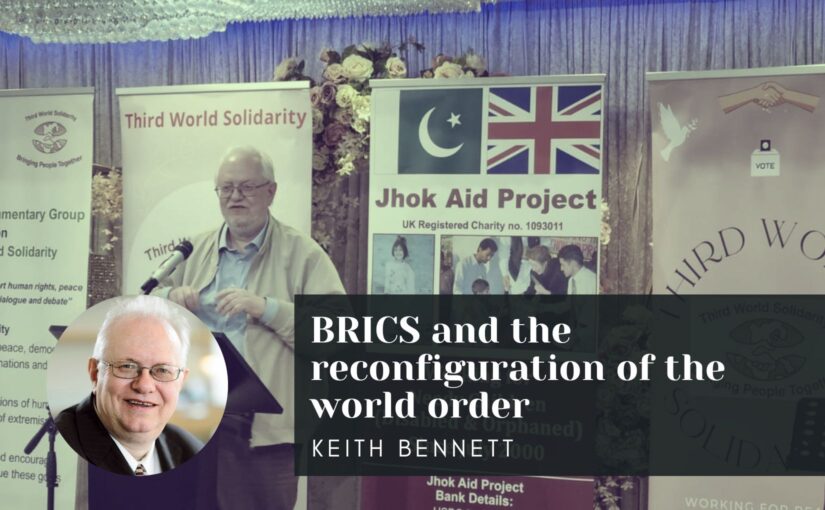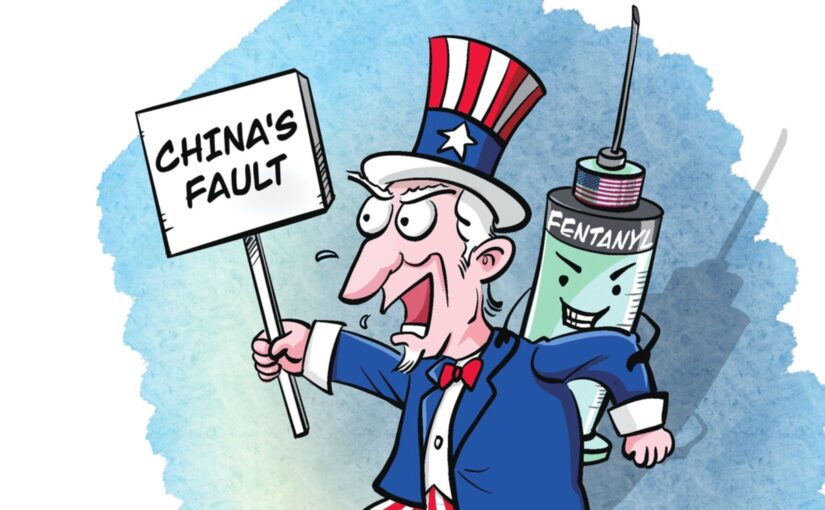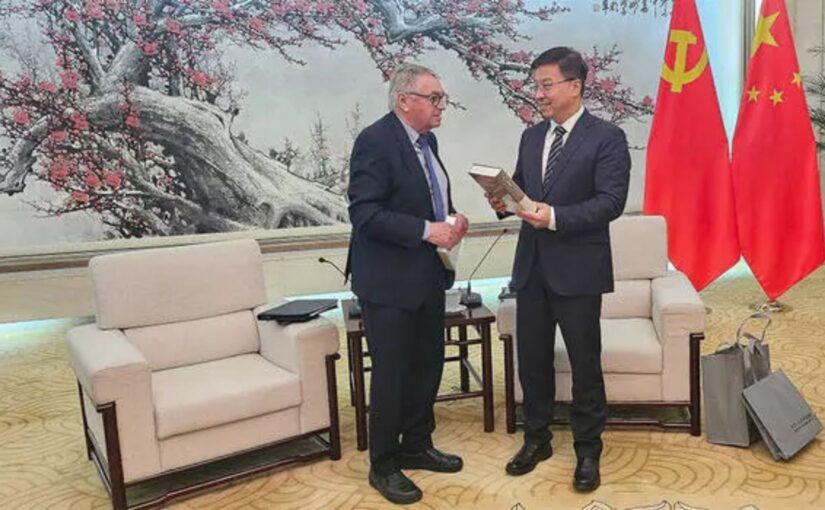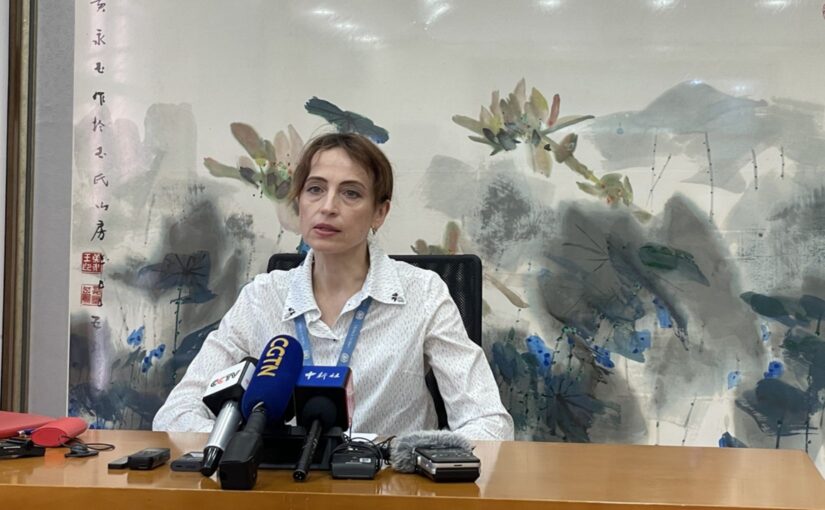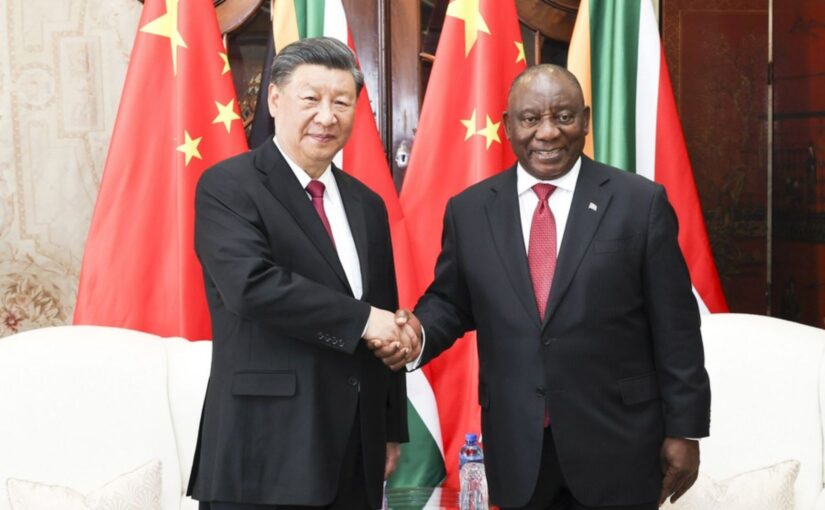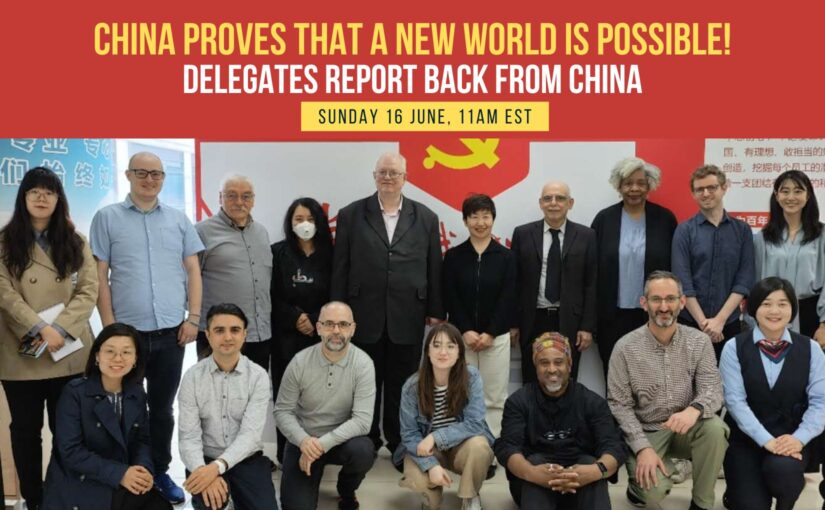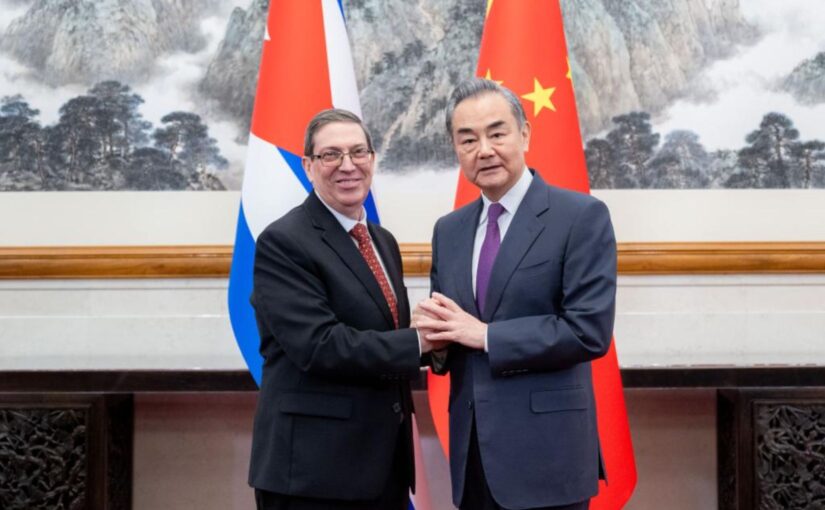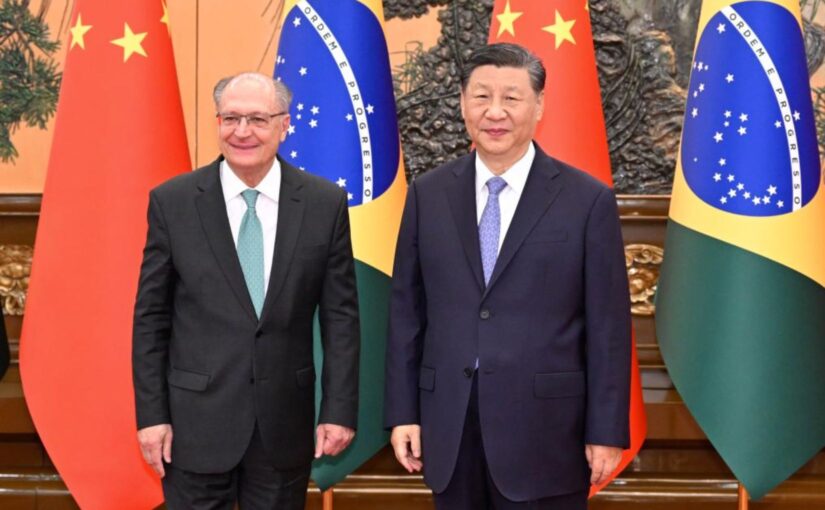A conference marking the 70th anniversary of the Five Principles of Peaceful Coexistence, a cornerstone of Chinese foreign policy, was held in Beijing on June 28. With guests from around the world, including former political leaders from some 20 countries, President Xi Jinping made an important speech, and the event was moderated by Premier Li Qiang.
In his speech, President Xi said that the five principles, “marked a groundbreaking and epoch-making achievement in the history of international relations.”
He noted:
“The Five Principles of Peaceful Coexistence answered the call of the times, and its initiation was an inevitable historic development. In the wake of the Second World War, national independence and liberation movements swept across the globe, and the colonial system around the world crumbled and collapsed. At the same time, the world was overshadowed by the dark clouds of the Cold War.”
Meanwhile, newly independent countries aspired to safeguard their sovereignty and grow their national economy. New China followed the principle of independence, actively sought peaceful coexistence with all countries, and endeavoured to improve its external environment, especially in its neighbourhood.
Having been endorsed in joint statements with India and Myanmar, in 1955, “more than 20 Asian and African countries attended the Bandung Conference. They proposed ten principles for handling state-to-state relations on the basis of the Five Principles, and advocated the Bandung spirit of solidarity, friendship and cooperation. The Non-Aligned Movement that rose in the 1960s adopted the Five Principles as its guiding principles. The Declaration on Principles of International Law adopted at the 25th Session of the United Nations General Assembly (UNGA) in 1970 and the Declaration on the Establishment of the New International Economic Order adopted at the Sixth Special UNGA Session in 1974 both endorsed the Five Principles.”
Xi Jinping went on to note that:
- The principles fully conform with the purposes and principles of the UN Charter, with the evolving trend of international relations of our times, and with the fundamental interests of all nations.
- When following the Five Principles, even countries that differ from each other in social system, ideology, history, culture, faith, development stage, and size can build a relationship of mutual trust, friendship and cooperation.
- Inspired and encouraged by the Five Principles, more and more countries in Asia, Africa and Latin America have voiced and extended support to each other, stood up against foreign interference, and embarked on an independent path of development. The Five Principles have also boosted South-South cooperation and improved and further developed North-South relations.
- The Five Principles were initiated with the purpose of protecting the interests and pursuits of small and weak countries from power politics. They categorically oppose imperialism, colonialism and hegemonism, and reject belligerent and bullying practices of the law of the jungle.
Seventy years ago, the Chinese leader continued, “our forefathers, who experienced the scourge of hot wars and the confrontation of the Cold War, concluded that the Five Principles of Peaceful Coexistence were the crucial way to safeguard peace and sovereignty. This answer has withstood the test of international vicissitudes and has become more appealing rather than obsolete. Seventy years later today, challenged by the historic question of ‘what kind of world to build and how to build it,’ China has answered the call of the times by proposing a community with a shared future for humanity.”
Xi went on to say that both the five principles and the concept of a community with a shared future for humanity “demonstrate the broad vision of the Communist Party of China to contribute more to humanity.”
“Looking at the past and future at this critical moment in history, we believe our exploration for the betterment of human civilisation will not end, and our efforts for a better world will not end. No matter how the world evolves, one basic fact will not change. There is only one Planet Earth in the universe, and the whole humanity have one common home.”
On this basis, Xi set out a number of imperatives:
- We need to uphold the principle of sovereign equality.
The five principles reject the big subduing the small, the strong bullying the weak, and the rich exploiting the poor.
- We need to cement the foundation of mutual respect.
We must jointly uphold the “golden rule” of non-interference, and jointly oppose acts of imposing one’s will on others, stoking bloc confrontation, creating small circles, and forcing others to pick sides.
- We need to turn the vision for peace and security into reality.
All countries must work together to seek peace, safeguard peace, and enjoy peace. In today’s interdependent world, absolute security and exclusive security are just not viable.
- We need to unite all forces to achieve prosperity.
Here Xi invokes a Latin American proverb: “The only way to be profitably national is to be generously universal.”
- We need to commit to fairness and justice.
China believes in true multilateralism. Our goal is that international rules should be made and observed by all countries. World affairs should be handled through extensive consultation, not dictated by those with more muscles.
- We need to embrace an open and inclusive mindset.
All countries are on board the same giant ship. It carries on it not only aspirations for peace, economic prosperity and technological advancement, but also the diversity of civilisations and the continuation of the human species.
Whilst the Five Principles are intended to address the full spectrum of international relations, Xi emphasised that:
“Of all the forces in the world, the Global South stands out with a strong momentum, playing a vital role in promoting human progress. Standing at a new historical starting point, the Global South should be more open and more inclusive and join hands together to take the lead in building a community with a shared future for humanity.”
Addressing the Global South, he made the following calls:
- Together, we should be the staunch force for peace.
- Together, we should be the core driving force for open development.
- Together, we should be the construction team of global governance.
- Together, we should be the advocates for exchange among civilisations.
He continued by outlining a series of concrete measures that China will take to better support Global South cooperation.
Noting that, “the Five Principles of Peaceful Coexistence has been written into China’s Constitution long before,” Xi said that:
“China’s resolve to stay on the path of peaceful development will not change. We will never take the trodden path of colonial plundering, or the wrong path of seeking hegemony when one becomes strong. We will stay on the right path of peaceful development. Among the world’s major countries, China has the best track record with respect to peace and security. It has been exploring for a distinctly Chinese approach to resolving hotspot issues. It has been playing a constructive role in the Ukraine crisis, the Palestinian-Israeli conflict, and issues relating to the Korean peninsula, Iran, Myanmar, and Afghanistan. Every increase of China’s strength is an increase of the prospects of world peace.”
The conference also adopted a Beijing Declaration, summarising key viewpoints of the participants.
We reprint below the full text of President Xi Jinping’s speech and of the Beijing Declaration. They were originally published on the website of the Chinese Foreign Ministry.
